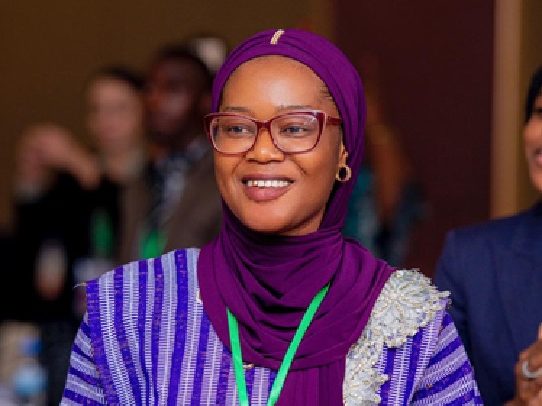Introduction
With a panoply of experts who worked on the various thematic areas, the New Patriotic Party (NPP) manifesto gives excitement, inspiration and optimism with its bold solutions. The manifesto persuasively gives us a chance to stay above assumptions and concentrate on fundamental solutions of each thematic area captured therein.
The thematic area on Gender, Children and Social Protection is the oasis of the NPP manifesto imprinting the core values of a progressive society in relation to life’s evolving phases as well as biological and physical vulnerabilities. It is thus imperative to further highlight some of the policies and initiatives under this thematic area to drum home the NPP’s commitment to Gender, Children and Social Protection.
People With Disabilities (PWDs):
To continue its crucial role in promoting the rights and wellbeing of people with disabilities (PWDs), a legal framework will be established for the National Council on Persons with Disability as a public service agency. The inclusivity of PWDs in Ghana’s progress must be intentional in order to promote their rights, address disability discrimination and enhance their effective participation in different aspects of the Ghanaian society. To further advance the place of PWDs in Ghana’s development, the manifesto commits to strengthen disability inclusion by elevating the National Council on Persons with Disability to an Authority with regional and district offices to lead the implementation of the proposed Persons with Disability Bill.
The manifesto also commits to increasing the allocation of District Assemblies Common Fund (DACF) for PWDs from 2% to 3% to foster community-based development, and streamline transfers to ensure effective utilisation. The allocation of the fund over the years has resulted in the provision of resource centres, accessible toilets, skills training, assistive devices, specialised teaching materials among others. The increment in allocation will, therefore, increase the impact with accelerated support services.
The next NPP led-government, with certainty, recognises the need to support students with disabilities and, therefore, is committed to continue with, and increase the capitation grant to Special Needs Schools to address the unique challenges confronting them. This will improve access to quality education for students with disabilities. PWDs will be given scholarships at tertiary level. With a belief in equal opportunities and equity, the provision of inclusive quality education for Ghanaian children with disabilities is non-negotiable.
The Aged
The manifesto promises to work with Parliament to pass an Ageing Act to provide an expanded legal framework for the care and protection of the aged. The elderly (60 years and older) population in Ghana is made up of 1,129,906 (56.7%) females and 861, 830 (43.3%) males (source: Ghana Statical Service). In the report, the percentage of Ghanaians over 65 years is 3.14% and growing from census to census. The report also revealed additional vulnerabilities that confront the aged in this country including one out of every four elderly persons being multidimensionally poor. Thus, this population of Ghana deserves dignity, support and security to ensure they live healthy, happy and fulfilling lives.
Encouraging healthcare institutions and vocational schools to offer training programmes in geriatric care, to address the growing need for elder care, consistent with our plan to issue policy guidelines for the establishment of homecare, nursing homes and rehabilitation services which includes a caregivers’ support policy is another manifesto commitment. These specialised services will ensure this critical phase of life of the Ghanaian becomes a beautiful experience as they receive the support they need to live quality lives.
With an urgent need to ensure the financial security of retirees, the manifesto has also committed to enact the necessary legislation to enable retirees purchase or sell annuities for liquidity and support pension income, and to also grow the insurance industry. A steady income stream will not only protect retirees from market volatility but will also help them to maintain their standard of living in order to have a secured and comfortable retirement.
Social Protection
Leveraging on digitisation and the Ghana Card, the unified social protection benefits scheme is an effective approach which will streamline all the existing programmes to make it efficient, equitable and comprehensive with a commitment to enact the Social Protection Act and ensure its implementation. This will advance a coordinated government support and inspire individual responsibility towards financial independence and security. The comprehensive system in Singapore is a testament of the possibility to have a unified system that can enhance support for vulnerable people and provide efficient and effective services to individuals and families.
The facilitation of the creation of homeless shelters as a critical safety net across the country by the next NPP government will further strengthen our social fabric. These shelters will serve as safe and supportive havens for emergency cases such as domestic violence, exploitation, trafficking, disasters among others. Enhancing social stability and promoting human dignity underscores the need for these shelters to provide support and essential services. Working with the private sector on this is an added boon.
CONCLUSION
The NPP Gender, Children and Social protection policies and initiatives in the manifesto do not seek to mollycoddle women, men, children, the aged and PWDs. These policies and initiatives rather focus on bone-deep respect, care and value for individual members of the Ghanaian society. They are value-set policies and initiatives stamped with clarity and purpose, to ensure we leave no one behind with DR. MAHAMUDU BAWUMIA as President.
By Hikmat Baba Dua Member, Gender, Children and Social Protection Manifesto Sub-Committee


